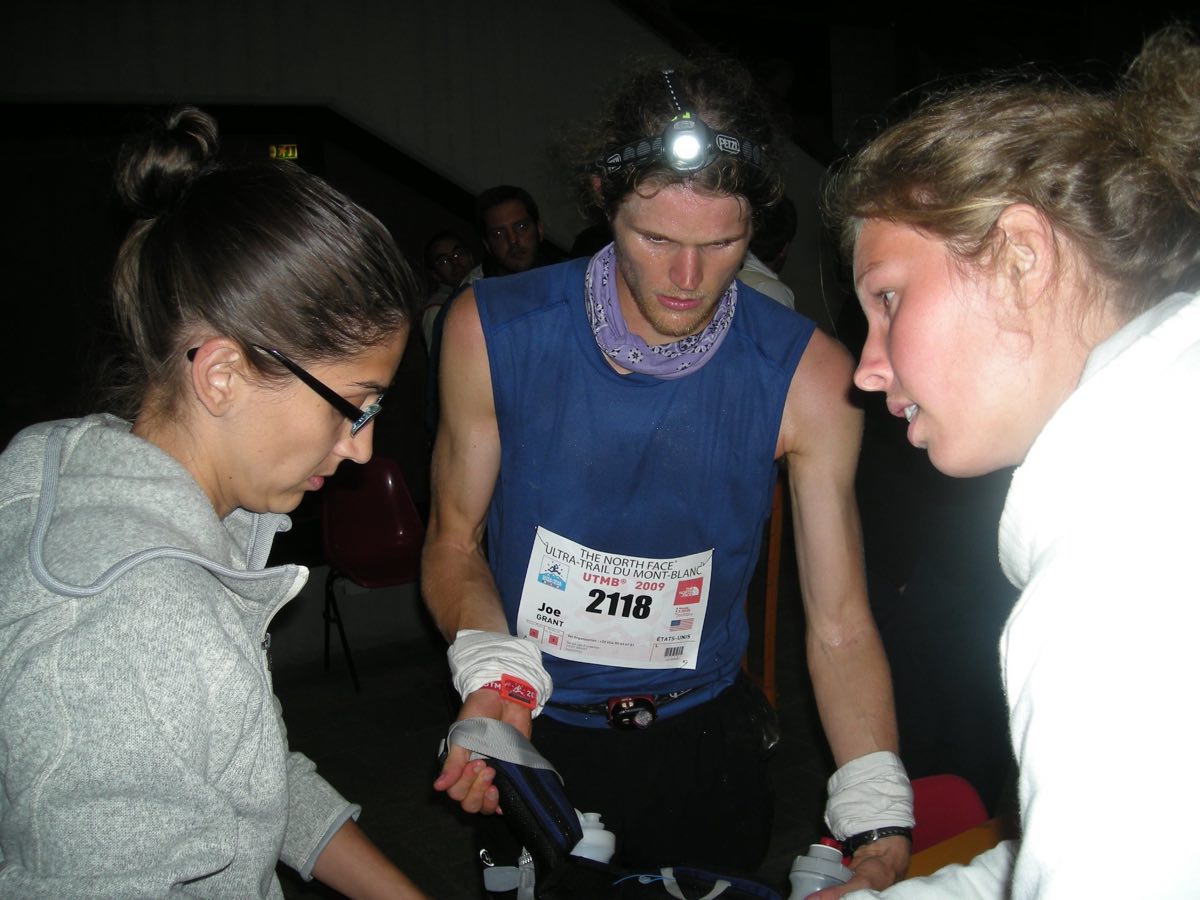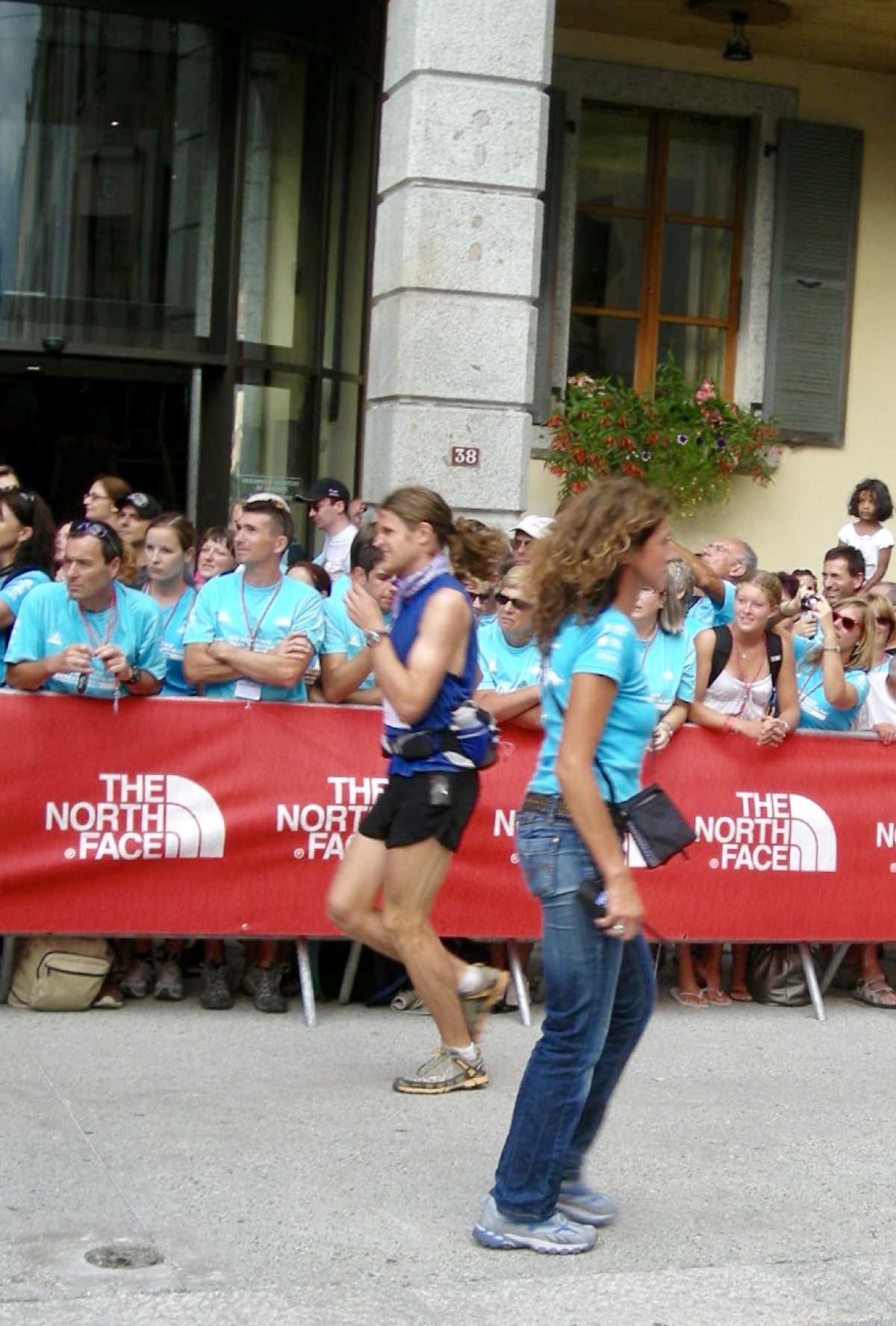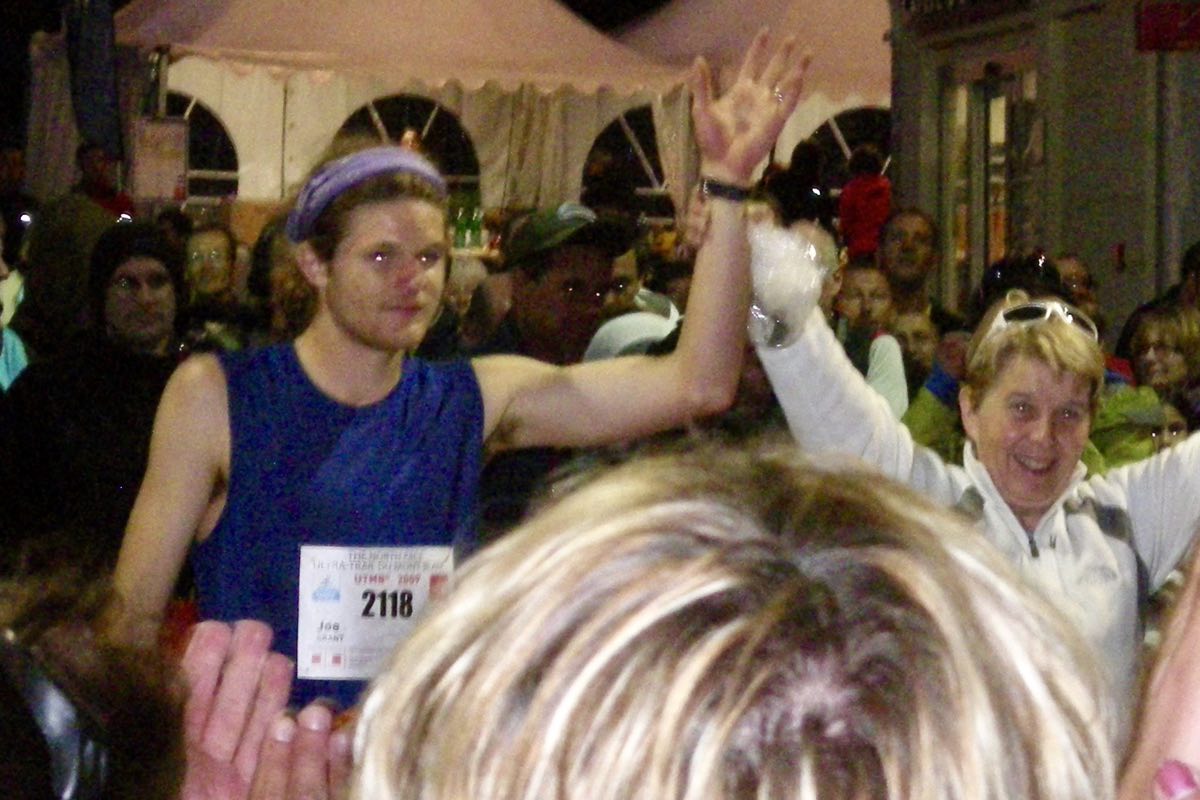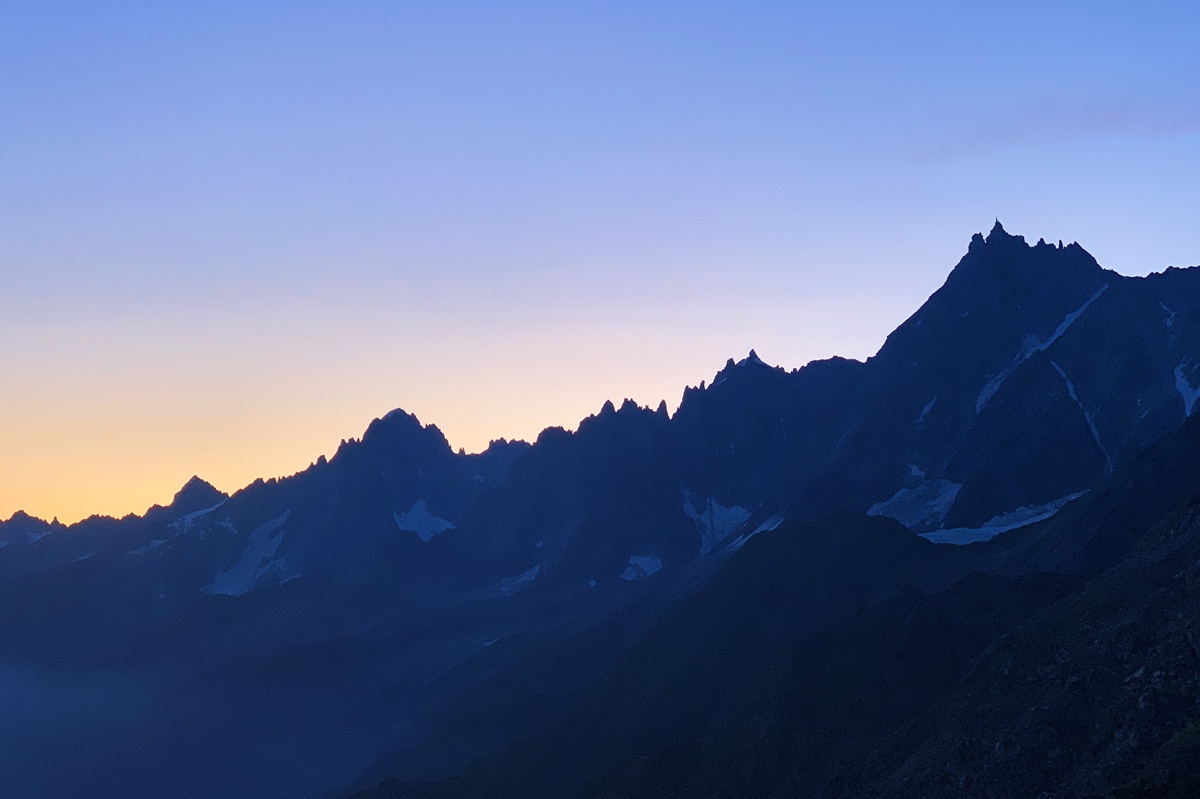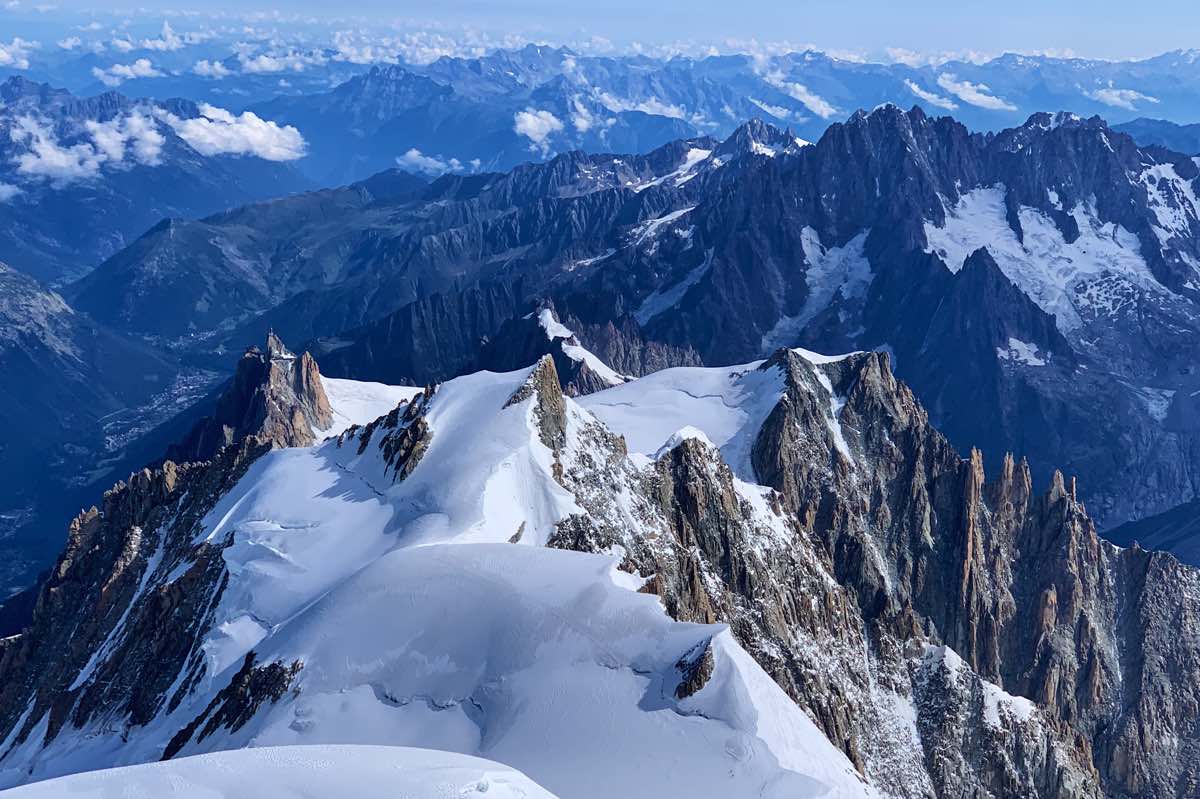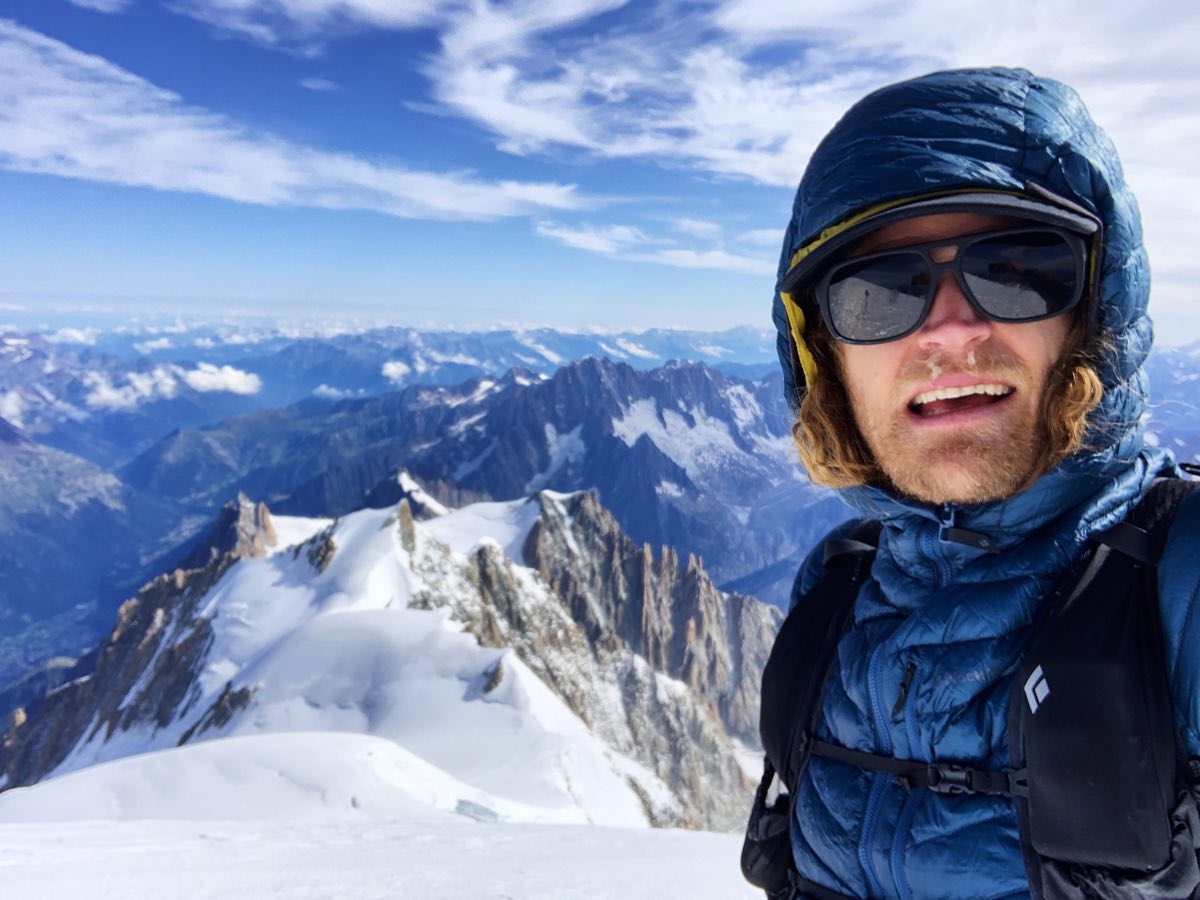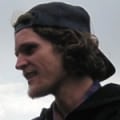It’s mid-August, and I’m enjoying a cup of coffee on the balcony of my rental apartment in Chamonix, France. I’m treated to a rare occurrence for this time of year, quiet streets. Granted it’s 3 o’clock in the morning, so aside from a few bakers, bar stragglers, and mountain ramblers, the town sleeps. The popularity of the valley is such that regardless of the hour, stillness here is notable. Of course, the draw is the rooftop of the Alps, Mont Blanc, that dominates the skyline like a giant melting snow cone.
My first time here was 10 years ago. I’d come to run UTMB, my debut at the 100-mile distance. My initial interest in the event was piqued by a photograph of Topher Gaylord on the cover of Trail Runner Magazine running one of the first editions of the race. At the time, I honestly couldn’t believe that people ran that far, especially in the mountains!
UTMB was compelling to me for a number of reasons: I wanted to run my first 100 miler in the country where I grew up and was curious to see if I had what it took to complete the distance. The central appeal though was, without a doubt, Mont Blanc. The mountain had a near mythical aura in my mind as the birthplace of alpinism, and I thought of the circumnavigation as a kind of homage to the peak and its history.
My friend, Cordis Hall, summed up my feelings from 2009 when he first encountered the mountain this summer. Cordis said, “It’s kinda’ intimidating rolling into the valley looking up at Mont Blanc knowing you’re gonna’ run all the way around it.”
In 2009, standing at the start line of UTMB by the church in the center of Chamonix, I can still hear the MC announcing, “Close your eyes, feel the music,” as Vangelis’s song Conquest of Paradise blared from the speakers. The tone was set; we weren’t runners, we were gladiators readying ourselves for battle. I felt at odds with the mood, for the idea of conquest in the mountains has always been perplexing to me. If you’ve spent any amount of time in these rugged environs, chances are arrogance has been overpowered by the humbling feeling of frailty and smallness in the shadow of giants.
My youthful exuberance had me running erratically, pushing a frantic pace for the first 100 kilometers. As I crested the Grand Col Ferret, I thought to myself, This is the farthest I’ve ever run, and I feel pretty good! That was the last of the good feelings though. At the bottom of the descent in the La Fouly aid station, I took a seat, ate a piece of cheese, and went deep into my first experience with the 100-mile bonk. I did close the loop, walking most of the way to the finish. As I crossed the line, I felt deep satisfaction and a sense of accomplishment, but any display of hubris was quickly silenced by the pain in my legs and the need to vomit.
A decade later, my motivation to run the race has waned, but I still love coming to the valley to seek out quieter, more personal experiences. As I jog along the Arve River in the wee hours of the morning on my way to ascend Mont Blanc, the draw and trepidation when faced with its grandeur remains intact. Whether running around its flank or scaling its jagged spines, the mountain has provided an endless source of curiosity, learning, and nourishment. I feel privileged and grateful to travel here, to move and interact with its many different facets. And, though my skills and experience have increased significantly since those early days, the sentiment of reverence still supersedes any notion of conquest.
Call for Comments (from Meghan)
- When was the last time you were out on a run or adventure where nature showed you that it was ultimately in control?
- What do you think is behind the historic human desire to dominate nature?
